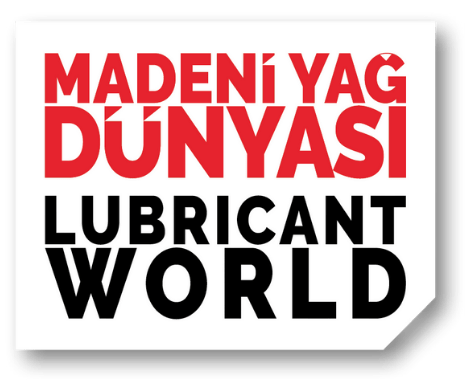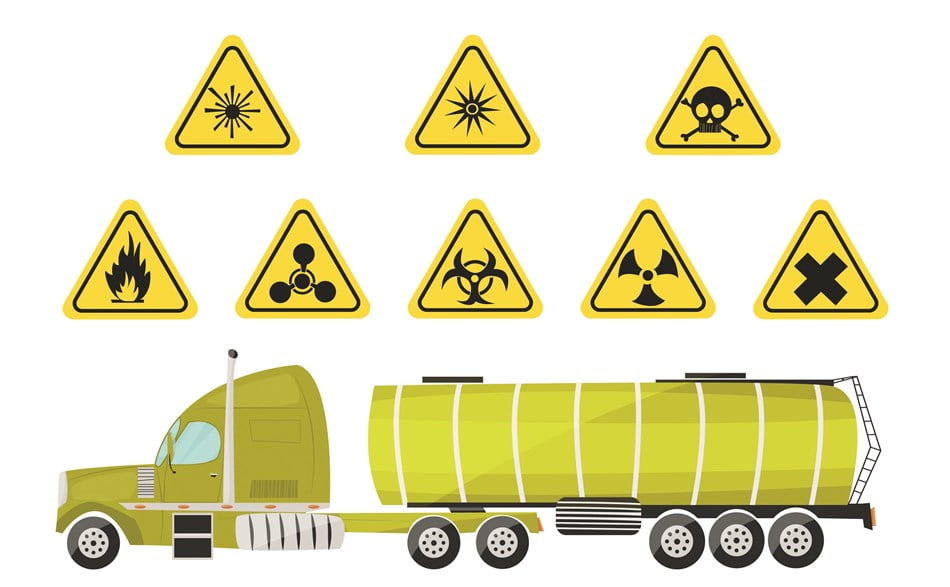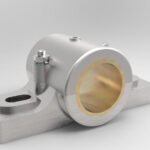We interviewed two young entrepreneurs, Sertaç Yücelbak and Ünal Sarı, founders of Sunlog Logistics, a company that provide transportation and storage services to the lubricants and chemicals sector, and asked them about the needs and expectations of this sector.
First of all, we would like to get to know you.
We, Sertaç Yücelbak and Ünal Sarı, realized our idea of Sunlog Logistics based on our experience in the sector, and chose to create the name of our company from our initials.
Let’s focus on our company Sunlog, and talk about our services and idealistic thoughts.
Well, let’s start by talking about the logistic activities that you provide as Sunlog.
Using the advantage of having a very large agency network, Sunlog has a fast, high quality and reliable partial transport line with its self-owned vehicle investments in France, Spain, Portugal, Germany, the Netherlands and Belgium. We continue to expand our agency network and to make investments in order to provide benefits to our customers and the sector.
Although the company was established in 2015, Sunlog was able to make its name heard in the sector for transports to and from Europe and soon became one of the leaders in its field. This success, of course, did not come with the names of Sertaç and Ünal; we have an incredible team behind us, a great agency network, a perfect supply chain and a self-owned vehicle fleet.
In line with our targets, we achieved a growth of 15 percent in 2018, and with the advantage of our expertise in partial express shipment we became one of the few logistics companies that were barely affected by the sectoral shrinkage.

Specific to the lubricant sector, the transport of dangerous goods and flammable materials is very important. What needs to be taken into consideration when transporting such materials?
Our expertise in the shipment of raw materials, especially dangerous and hazardous materials has taken us to a leading position in the sector in a short time. We attach the primary importance to the requirements and constraints in this area and the support we provide for training. We believe quality in services can only be achieved in this way.
One of the most important things to consider in the transport of dangerous goods is to accurately prepare the international documents that are mandatory for export and import, and this requires expertise. Which vehicle to transport the goods, with which other hazardous material classes, and which routes to use are the ABC of transporting dangerous goods. For all types of transport, such as sea, air, road and train, all hazardous materials must be handled in accordance with the current sanctions. The European Agreement concerning the International Carriage of Dangerous Goods by Road (ADR), signed in 1957 under the auspices of the United Nations Economic Commission for Europe (UNECE) and entered into force in 1968, is one of the most important agreements for road transport. In the scope of ADR; there are hazard classes including Explosives, Gases, Flammable Liquids, Flammable Solids, Substances Liable to Spontaneous Combustion, Substances which Emit Flammable Gases in Contact with Water, Oxidizing Substances, Organic Peroxides, Toxic Substances, Infectious Substances, Radioactive Materials, Corrosive Substances and Miscellaneous Dangerous Goods, and each class has sub-classes. As such, there are agreements to follow for the transport of dangerous goods by other types of transport.
In addition to this, drivers and supply channels must have a command of the required foreign language. We attach great importance to the language education of our human resource, and in this way we can minimize all human-driven risks.

Which services do you offer in this area?
While the sea route is mostly preferred for cargoes in the lubricants sector, the advantages we offer in road transport eliminate the attraction of sea transport. Timely delivery and speed bring stock costs to the lowest level. Especially in 2016, the depression in imports came to a standstill in 2018 and the land route gained a new place. The boutique service, in which delivery time varies from 5 to 9 days, and goods up to 1300 kg, including the minimum load class, is delivered to the receiver within 48 hours.
If the freight contains flammable and hazardous materials, you should work very rigorously from order to delivery. Being aware of this meticulous work, we have a flammable and hazardous material specialist to maintain controls and standards. Our drivers periodically attend training on current issues and foreign language.
As the boutique logistics services concept requires, we offer our services in accordance with the demands of our customers. Upon comparison of our costs, quality and delivery time, we are currently providing door to door services to many key lubricant manufacturers.
Do you have solutions to help relieve the burden of shipping on manufacturers?
Sunlog evaluates raw material supply of manufacturers as a project, and offers a package organization on a yearly basis by evaluating its services in the most convenient way and at the lowest cost possible. Within our package, cost, mode of transport and performance evaluation is submitted to the supply network in daily, weekly and quarterly reports. With this service, the manufacturer acts as a team with the supply chain and can report all processes from start to finish.
Being aware of the product we carry, manufacturers can receive instant response to their queries with our one-to-one customer service, and can follow the process in every phase from the supplier to the manufacturer with the GPS system.




